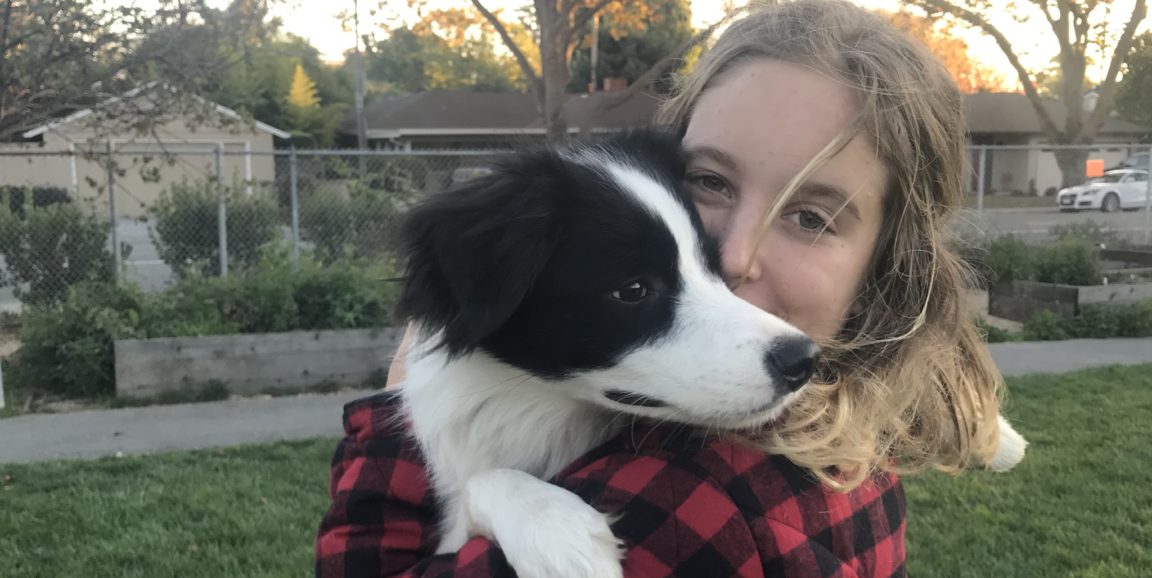In the fall of 2017, at the beginning of my senior year of high school, I ended up at Stanford Hospital after my depression had reached a low point. The doctors released me after a few hours, telling my parents to watch me carefully.
The next day, as I was walking my dog alongside my mom, surrounded by warm sunlight and leaves falling from the trees, my mom's phone rang. I stood next to her, unsure how to react as she asked questions like "Really?" "When should she come in?" "Is it urgent?"
It turned out that the electrocardiogram that was done in the hospital showed an abnormal heartbeat.
We packed up my things, including my scrappy childhood stuffed elephant, and returned to the hospital. I had another EKG. Then we waited in the unsettlingly bright light for an explanation.
It was such a funny feeling, being told that there was something wrong with my heart, because I have wondered about that my entire life. I've always dreaded exercise. The mile run, required for PE class at school, terrified me. I knew I would eventually become lightheaded and have to slow down from my already walking-paced jog.
At the hospital, the doctor said my EKG showed my heart was beating too slowly. I was eventually admitted, and I stayed there for a week, eating more cheese quesadillas and Rice Krispy treats than I'd like to admit.
Different specialists flowed in and out, each stumped by my case. After figuring out my heart performed better when I exercised, something I found confusing, they sent me home with no definite answers.
Several months passed before I had the courage to see another cardiologist. I sat alone and nervous in the exam room. The cardiologist walked in, shook my clammy hand and began asking what symptoms I was experiencing. I said none, which was not the full truth.
The baseline of fatigue I have always experienced had grown worse in the previous year. I found myself lying down often, needing more sleep and unable to stand for very long. Despite these symptoms, I wasn't ready to admit that I had a real issue with an intimidatingly important organ.
The cardiologist gave me a heart monitor to wear for a week. After she reviewed the results, she told me to meet an electrophysiologist and recommended Mohan Viswanathan, MD, a Stanford professor of cardiovascular medicine.
The clinic was able to squeeze me in for an appointment within two weeks. I sat in the exam room for a full hour, wondering if it was worth it, alternating between anxiety and denial. I'd heard the term pacemaker thrown around a few times by doctors and nurses, but I thought this appointment would only confirm that I would never -- never -- need anything like that.
When Dr. Viswanathan walked into the room, he explained that my heart rate drops to 20 beats per minute when I sleep, that it's too low during the day, and that it skips beats frequently, a condition called heart block.
He suspected that my condition was caused by neonatal lupus, in which the antibodies from my mom, who was diagnosed with lupus soon after I was born, led to my abnormal heart rhythm. He told me the ultimate solution would be for me to have a pacemaker, but it was up to me: I could try other approaches, such as exercising or drinking caffeine to increase my heart rate.
I finally understood what was wrong, after a long time of feeling completely out of control. I decided to get a pacemaker: It would give me more energy, and I wouldn't have to fear being rushed to the hospital whenever my heart rate dropped too low.
After many follow-up appointments, moments of self-doubt, long discussions, and a rescheduling of the procedure, I was ready to become a bionic woman.
The pacemaker surgery would take place on Sept. 6, 2019.
Up next: In Part 2 of this story, I describe my surgery to have a pacemaker implanted and how the device has changed my life.
Bea White grew up in Palo Alto and attends Foothill College, where she is studying biochemistry.
Photo by Anna Erickson White




